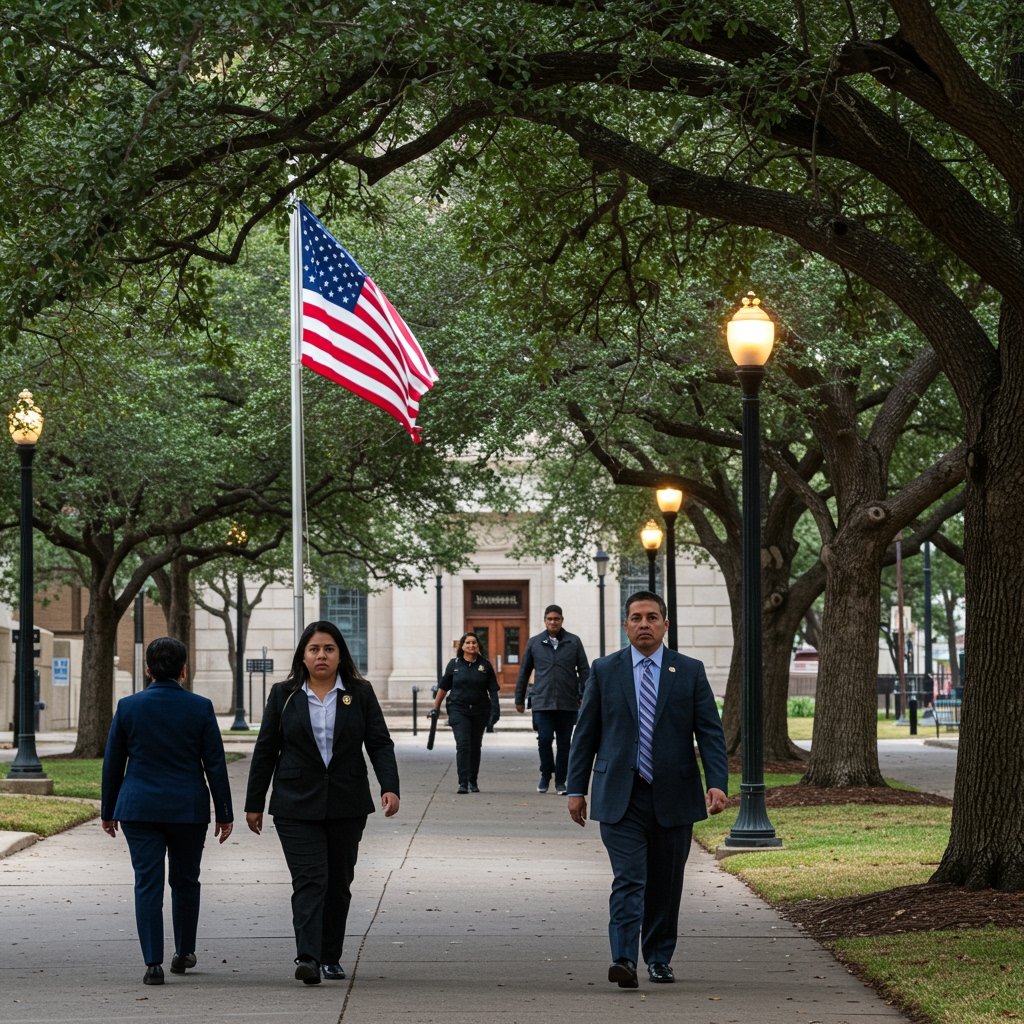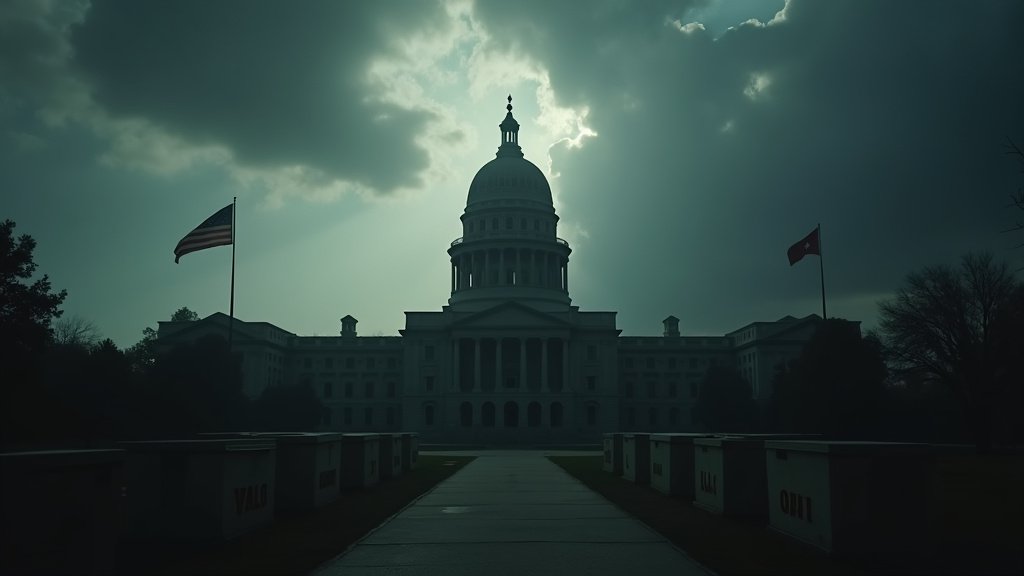Texas Appeals Court Blocks Enforcement of State Immigration Law SB 4
A Texas state appeals court on Friday issued a significant ruling, temporarily blocking the enforcement of the state’s controversial immigration measure, Senate Bill 4 (SB 4). The decision, handed down by the Fifth Court of Appeals in Dallas, represents a temporary victory for opponents of the law and injects further uncertainty into Texas’s efforts to enact its own immigration enforcement mechanisms.
The Fifth Court of Appeals cited ongoing federal litigation challenging the legality of SB 4 as a primary reason for its decision to issue a temporary injunction. Furthermore, the court’s order referenced fundamental questions regarding the law’s constitutionality and whether its provisions are preempted, or superseded, by existing federal authority over immigration matters. This legal concept of federal preemption is central to the challenges against SB 4, as the U.S. Constitution grants the federal government broad powers concerning immigration and border control.
Immediate Impact: Enforcement Halted
The practical effect of Friday’s ruling is immediate and substantial. It means that state and local law enforcement agencies in Texas cannot currently arrest or deport individuals based solely on suspected illegal entry into the United States under the specific provisions outlined in SB 4. Prior to this stay, the law, if allowed to take effect, would have authorized Texas officials to detain and prosecute individuals suspected of crossing the border unlawfully. The court’s injunction effectively presses pause on these state-level enforcement powers while the legal battle continues.
Supporters of SB 4 argue the state is justified in taking its own measures to address what they describe as a crisis at the border, citing insufficient action by the federal government. They view the law as a necessary tool to deter illegal immigration and enhance state security. Opponents, however, contend that the law is not only unconstitutional but also risks racial profiling and undermines the uniform application of immigration laws, which they maintain is a federal responsibility.
Background on SB 4
Senate Bill 4 was signed into law in December 2023. It quickly became one of the most debated state-level immigration measures in recent U.S. history. The law creates new state crimes related to unlawful entry or re-entry into Texas from a foreign nation. It also grants state judges the authority to order individuals returned to the foreign country from which they entered. Critics argue these provisions intrude upon the federal government’s exclusive jurisdiction over immigration enforcement and international relations.
Federal law, specifically the Immigration and Nationality Act, establishes a comprehensive framework for regulating the entry, presence, and removal of non-citizens. The principle of federal preemption holds that when federal law occupies a field or when state law conflicts with federal law, the federal law controls. Opponents of SB 4 argue that the state law attempts to create its own immigration system that directly conflicts with and is preempted by this federal framework.
The Legal Landscape and the Court’s Reasoning
The Fifth Court of Appeals in Dallas issued its stay in response to ongoing legal challenges. The most prominent challenge is a lawsuit filed by the U.S. Department of Justice, along with civil rights groups, arguing that SB 4 is unconstitutional and preempted by federal law. This federal litigation is currently pending, navigating its way through the federal court system, including potential review by the U.S. Supreme Court.
The Dallas appeals court’s decision to grant the temporary injunction is based on its assessment of the legal arguments presented, particularly the likelihood that the challenges to SB 4 on grounds of federal preemption and constitutionality may succeed. By issuing the stay, the court indicated its view that allowing the law to be enforced while these fundamental legal questions are unresolved would create significant potential harm and legal confusion. The court’s reference to “ongoing federal litigation” underscores the complexity of the legal landscape, with simultaneous challenges unfolding in both state and federal court systems.
The temporary injunction granted by the Fifth Court of Appeals is not a final ruling on the merits of SB 4. It is an interim measure designed to preserve the status quo and prevent the implementation of the law’s enforcement provisions while the deeper legal questions are being litigated. The court’s order specifically mentioned the necessity of considering the status of the federal challenges, suggesting a deference to the federal judicial process that is also grappling with the law’s validity.
State’s Response and Future Steps
The State of Texas Attorney General’s office promptly reacted to the ruling from the Fifth Court of Appeals. A spokesperson for the office indicated that the state plans to seek an immediate appeal of the decision to the Texas Supreme Court. This move is anticipated, as the state administration has consistently defended SB 4 as a necessary and constitutional exercise of state power.
An appeal to the Texas Supreme Court would elevate the case to the highest state judicial body. The state Supreme Court could choose to uphold the appeals court’s temporary injunction, modify it, or lift it entirely, allowing SB 4 to take effect while the legal challenges proceed. However, even if the Texas Supreme Court were to lift the state-level injunction, SB 4 still faces significant hurdles in the federal court system, where a separate injunction has been sought and debated. The interplay between the state and federal court cases adds layers of complexity to the SB 4 legal saga.
The legal battle over SB 4 is far from over. The Texas Supreme Court will now consider the state’s appeal, which could lead to a new ruling on the temporary injunction relatively quickly. Regardless of the outcome at the state level, the federal lawsuit challenging SB 4’s constitutionality and arguing federal preemption will continue to move through the federal courts. This legal process could ultimately lead to a definitive ruling on SB 4’s legality by the U.S. Supreme Court.
For now, however, the ruling from the Fifth Court of Appeals in Dallas means that the controversial state law designed to allow Texas law enforcement to make arrests based on suspected illegal entry into the U.S. remains on hold, pending further judicial review at the state’s highest court.






